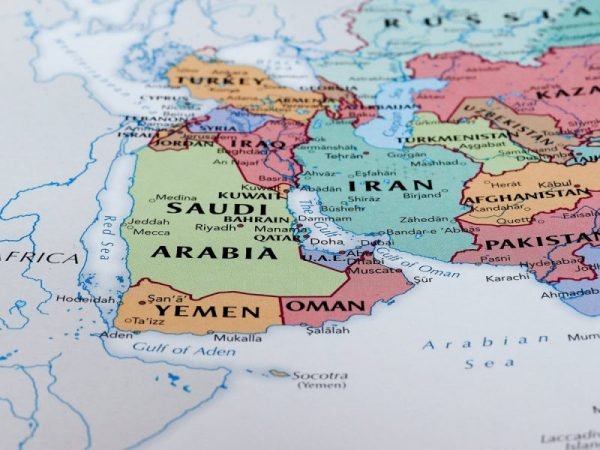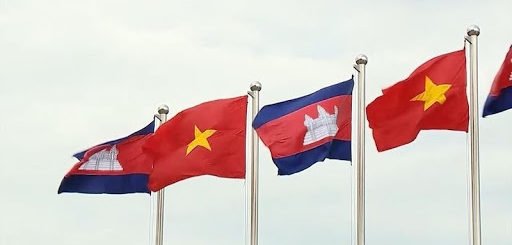Changing Breeze In the Middle East

Introduction
The Middle East remains one of the most convoluted regions in the world. The intricacies of the area are not just the outcome of geopolitics, but a host of other reasons and the latest entrant to that catalogue is the Abraham Accords. On September 15, 2020, the ceremonious inking of Abraham Accords has changed the dynamics of the Middle East yet again. The deal was a formal acknowledgement of normalisation of relations of Israel with the United Arab Emirates and the Kingdom of Bahrain. To some, this deal left them baffled. But to some, the accord was in the making for a long time. Sudan became the third country in recent times to announce the normalisation of relations with Israel. The joint statement of the US, Sudan and Israel on October 23 accrediting the normalisation was just another display of changing realities of the time. The buck doesn’t stop here. Countries like Morocco, Tunisia, Oman would soon follow suit.

Reading the signals
The normalisation of relations between Israel and the UAE is the natural outcome of their covert cooperation especially, in the fields of intelligence sharing and cybersecurity. Over the past decade, UAE has been one of the closest destinations for Israeli spyware, drones, cyber technology. One of the perfect examples to highlight the cooperation could be “Falcon Eye”, a surveillance system in the UAE completed in 2016, based on Israeli technology. In October 2018, Israeli sports and culture minister Miri Regev was in UAE for the Judo Grand Competition where an Israeli athlete was participating. She even toured Sheikh Zayed Grand Mosque. All these facts alluded to the possibility of the normalisation. It was just about time.
Expansion of relations
The full diplomatic relations between the two countries have opened flood gates of cooperations and opportunities. Dubai Ports World along with an Israeli company would be jointly bidding for Israel’s Haifa port. The enthusiasm and eagerness for collaborations are inevitable. On October 20, UAE officials visited Israel and signed four agreements on investment protection, science and technology, aviation and visa exemption. Israel and UAE have agreed to start direct flights between the two countries and fly 112 flights per week. The revival plan of an old pipeline from Eilat on the Red Sea to Ashkelon on the Mediterranean sea originally envisaged to transport Iranian oil will now carry Emirati oil to Europe significantly reducing the cost and time. An Israeli tech delegation visited UAE on October 27, to meet Emirati officials and investors. Following the normalisation, one would see greater cooperation in intelligence sharing, cybersecurity, technology transfer and collaboration in the missile defence system, agriculture, pharmaceuticals etc.
Pragmatic UAE
UAE, along with other Gulf Nations, has traditionally been dependent on the US for their security. But with ebbing US, UAE wants to diversify its options. Another notable phenomenon change that would account for this diversification is the interventionist attribute as a regional player. Emiratis are involved in Syria, Yemen and Libya. It wants to maintain its influence over the region. The purchase of US arms come with some additional caveats regarding deployment, third-party transfer and improvement of human rights. UAE in recent times has cultivated its relations with other global players such as Russia & China. UAE and Russia agreed upon a strategic partnership agreement in 2018. Both the countries later announced a $1.3 billion trade deals. Emirati and Russian collaboration in the defence sector has strengthened in recent times. An evaluation of the very same can be done by analysing UAE’s shopping list of Russian defence equipment which includes anti-armour missiles, BMP-3 infantry combat vehicles, Pantsir-S1 missile defence system, Kornet-E anti-tank missile system. The strengthening of relations is not just limited to defence but is witnessing a significant widening of horizon such as Emiratis investment in Russia and Russia granting Visa on arrival for the Emiratis.
Emiratis are not far behind in cultivating cherished relations with the Asian giant. UAE is the second-largest partner of China when it comes to trade. UAE is also a party to Xi Xinping’s ambitious global project Belt and Road Initiative. There is a considerable increase in the footprint of Chinese companies in the region. Chinese petroleum companies have marked their presence in Emirati oil shores. Last year Both the countries have agreed to develop a joint R&D facility in the defence sector in Abu Dhabi. UAE has also bought Chinese drones such as such Chinese Wing Loong II and ISR capable CH-4.
In its endeavour of diversifying its defence arsenal, Israel would prove to be a copper-bottomed partner especially in the fields of cybersecurity, drone technology, small arms. UAE might also intend to use its diversification strategy as a bargaining chip vis-a-vis the US to extract more from them. Despite UAE’s efforts to reduce its over-reliance on the American security umbrella, the US remains a formidable force in the region.

Palestinian Cause
Palestinians, as expected, were the most critical of the accord. They labelled it as a betrayal of the Palestinian cause. While some called it as being “sold out by friends”. But it is high time for the Palestinians to do an introspection. One of the biggest problems for the Palestinians has been their total dependence on external powers for the resolution of the dispute. Arab nations for long have supported the Palestinian cause even on their cost. But the reciprocity from the Palestinians has not quite been the same. For example, during the Kuwait Crisis in 1990, Yaseer Arafat supported Saddam Hussein what antagonised the Arab world. The Arab world is also bearing witness to the Palestinian paradoxy. On the one hand, they would perpetually clamour in the name of Israeli occupation while on the other hand, Palestinians are selling their land to the Jews for a hefty sum of money. The conduct of Palestinian refugees in their host countries at times become untenable because of their interference in the local affairs. Incoherence in the leadership is conspicuous from rivalry among the two major factions Hamas which controls the Gaza strip and Fatah which has sway over the West Bank territory. Palestinians need to sit down on the table and sought out their difference before blaming others for their misery. Palestinians will have to digest the fact that their cause doesn’t hold the same old sanctity in the Arab world. It is an important issue but not the most dominant issue. The resolution of Isreal-Palestine conflict is no more a pretext to the normalisation of relations with Israel.
Changing realities on the ground
Iran, with the traits of regional power, is emerging as a common threat for other nations in the region. The complexity of the geopolitics of the Middle East presents endless possibilities. Israel has made use of the changing contours of the area to full fill its prime foreign policy goals of recognition and ending the political and economic isolation. Turkey with the ambitions of becoming the leader of the Muslim world poses a challenge to the gulf nations. The possible outcome of the US Presidential election has overshadowed the region with some degree of pessimism. The Gulf nations fear that if Biden comes to power, he might reimpose the JCPOA. The normalisation of the relations between Israel and the Gulf nations will ferment some overt partnership or alliance to maintain the balance of power in the region. One can expect to see closer coordination between the Emiratis and the Israelis in Somalia, Yemen, Libya to secure their interests.



















